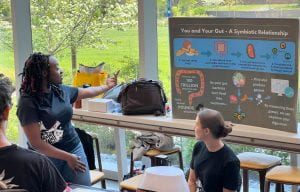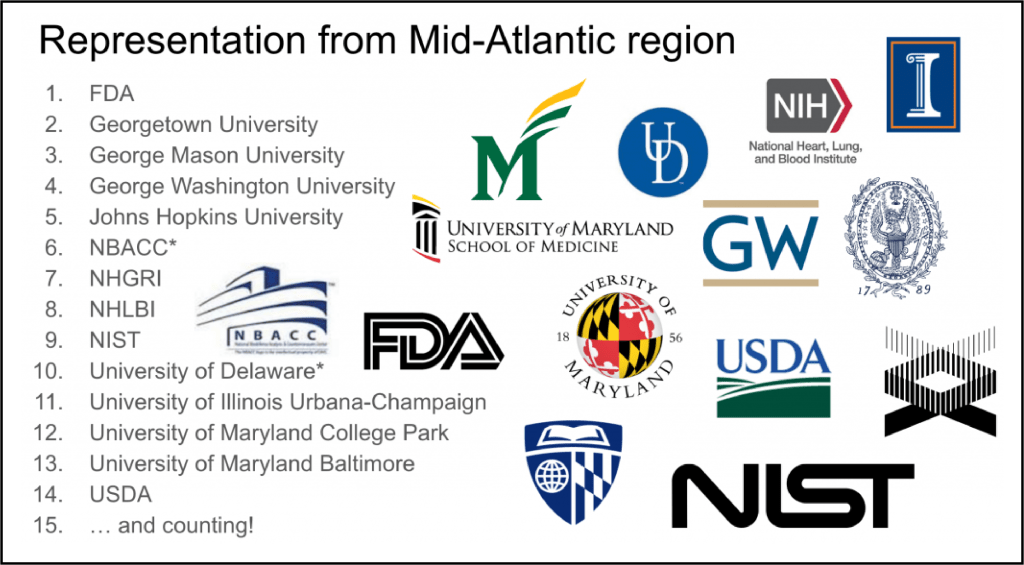Education
The momentum of scientific discovery as well as the growth of the microbiome industry cannot be sustained without investing in future generations of microbiome scientists and practitioners. The center plans to develop new microbiome-oriented courses and educational programs at the undergraduate and graduate levels, including cross-listed/interdepartmental courses.

The center will also establish new professional degree and certificate programs aimed at growing the microbiome workforce in the state of Maryland. In addition, the center will serve as a resource to the state’s thriving biotech industry, providing analytical and training services, as well as promoting technology transfer and entrepreneurship.
Federal Collaborations
 Since the University of Maryland is located just outside of Washington, D.C., our faculty, postdocs and students can readily interact with government agencies and federal policymakers focused on microbiome sciences. This includes research, education, and internship opportunities with organizations such as:
Since the University of Maryland is located just outside of Washington, D.C., our faculty, postdocs and students can readily interact with government agencies and federal policymakers focused on microbiome sciences. This includes research, education, and internship opportunities with organizations such as:
The National Institutes of Health, where there is an interest in understanding how the microbiome impacts human health.
The National Cancer Institute, where there is an interest in whether microbes can promote cancer, and how microbes interact with cancer therapies.
The Department of Agriculture, where there is an interest in how the microbiome can promote plant growth or promote animal health.
The Food and Drug Administration, where there is an interest in how antibacterial resistance to bacteria might move from animals to plants, and eventually into our food chain.
The Department of Defense and the Department of Homeland Security, where there is an interest in protecting us from future pandemics and from intentional biowarfare attacks that are based in microbiome science.
M3 Consortium
The University of Maryland has already established a leadership role in this area by establishing an annual Mid-Atlantic Microbiome Meet-up (M3) consortium. Since its launch in 2016, the meet-up has coalesced a regional community that includes academic institutions, state and federal agencies, and biotechnology companies.
One outcome of the center’s research conducted is the development of new devices, diagnostics tools, innovative intervention strategies, and other disruptive technologies. In collaboration with UM Ventures, the center will assist researchers to obtain IP protections and commercialize their inventions.

